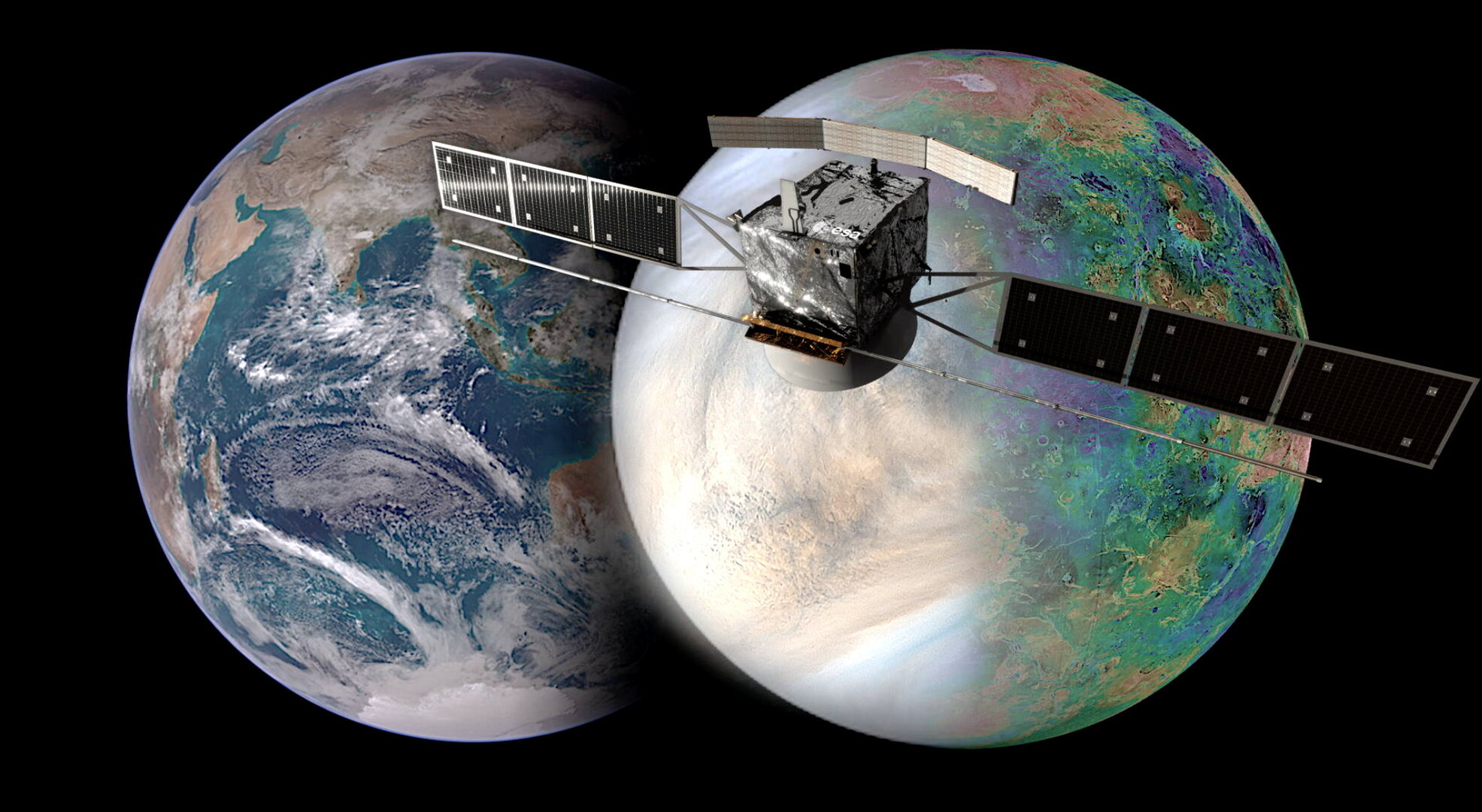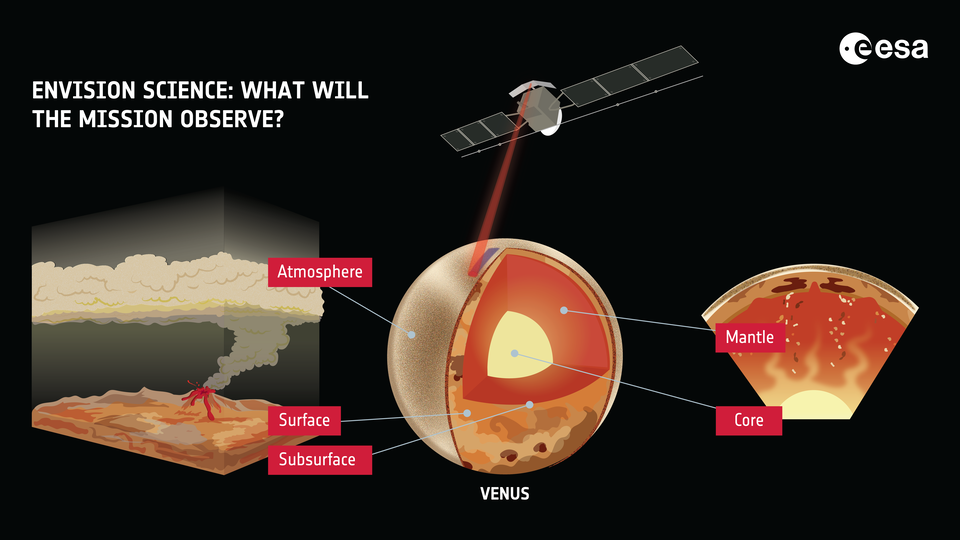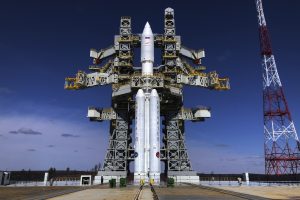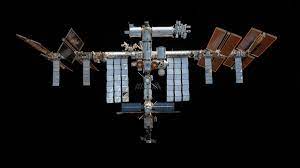ESA To Launch Venus Mission EnVision in 2031
28th Jan 2024
The European Space Agency’s Venus mission, EnVision, is set to go ahead after passing the ‘adoption’ phase. Once the mission launches in 2031, ESA will study Venus in its entirety: from the planet’s atmosphere to its “inner core”.
By holistically researching Venus, ESA aims to uncover the planet’s past, to identify the point where Venus became uninhabitable. Officially, ESA’s Science Programme Committee adopted the project meaning the “study phase” has been finalised and the design phase can commence.
Thomas Voirin, ESA’s Envision study manager, said in a statement: “Since the mission was selected back in 2021, we have advanced from broad science goals to a concrete mission plan. We’re very excited about moving to the next step. EnVision will answer longstanding open questions about Venus, arguably the least understood of the Solar System’s terrestrial planets.”
Why ESA Is Studying Venus
Announcing the mission’s next phase of development on 25th January, ESA aims to launch the soon-to-be-developed EnVision by 2031. The circumstances of the mission lie within Venus’ proximity to Earth – that is, the planet’s closest neighbour. Venus has a similar mass to Earth and resembles its size; however, inversely, Venus is extremely formidable.
Described by ESA as “not a pleasant place to visit,” Venus boasts an average surface temperature of 464 degrees. Its cloud layers predominantly consist of sulfuric acid; the surface is permeated with rocky terrain, and the atmosphere is incredibly dense. The most dense atmosphere in the Milky Way.
To make the planet even more uninviting, ESA said Venus’: “crushing air pressure [is] 92 times bigger than we experience on Earth’s surface.” Therefore, through EnVision, ESA is trying to solve the mystery: “How and when did Earth’s twin become so inhospitable?”
EnVision: ‘Unravelling Key Mysteries Of Our Hot Neighbour’

Under a partnership with NASA, ESA will lead the EnVision project as they attempt to uncover the planet’s blistering properties. The project will form one of three missions – the other two commissioned by NASA – and act as Europe’s second Venus Odyssey. The first was Venus Express, active between 2005 and 2014. Unrelated to EnVision, Rocket Lab is also undertaking a Venus mission to search for signs of life, expected to launch in late 2024.
EnVision will use an array of instruments to survey Venus’ volcanoes, tectonic plates and asteroid impact zones, ESA said. Such research will identify how Venus’ surface became so rugged, whilst capturing the planet’s geology. Additionally, EnVision will scope the planet’s “[core] structure and thickness… [as well as] mantle and crust”. Finally, EnVision will explore Venus’ climate and how its weather has shaped “geological activity on the ground”. ESA will be appointing a yet-to-be-named “European industrial contractor” later in the year. Their role will entail designing and building EnVision.
EnVision’s Instruments & Launch Onboard Ariane 6
The aforementioned instruments include a probe, which ESA said will be the first probe to penetrate Venus’ interior. Equally, EnVision will be equipped with a subsurface radar sounder and a VenSAR radar to “map the surface with a resolution down to 10 metres.” Other instruments include three spectrometers to research the surface’s composition. Finally, EnVision’s radio wave experiment tool will study the atmosphere.
ESA also announced Ariane 6 will be the launch vehicle that will transport EnVision. The infamous rocket has been plagued with delays and setbacks for years. However, its recent testing regime has yielded some success. As such, should further delays fail to arise, the rocket is poised to undertake its first launch in 2024. Should all go to plan, Ariane 6 will be a seasoned rocket by the time EnVision is ready for launch.







Thank you for your comment! It will be visible on the site after moderation.